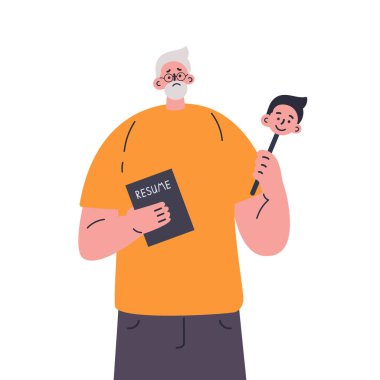What Is Ageism?

Ageism is a prejudice against the elderly. The term was first coined in 1969 and is specifically defined as stereotyping and/or discrimination against individuals or groups on the basis of their age. It also functions as marginalization and social exclusion of elder people when compared to the younger generation, and become less valued, and relegated to a second-class status; where their needs and their lives are treated as if they do not matter to the rest of society.
What Stigmas Do Elderly People Face?
As with racism and many other forms of discrimination, ageism so deeply embedded in our culture that often we don’t even notice it’s there. A lot of the time children and young adults are often exposed to negative stereotypes that have already been perpetuated about older people and they unconsciously apply these stereotypes to themselves when they get older, and it concurrently affects how both generations relate to one another now. Ageism can be manifested as many small behaviours and decisions that cumulatively have negative impact on the lives of older adults.
Some examples include:
- Telling someone they’re “too old” to do take part in a certain activity or event, or being surprised that they are doing said activities or events.
- Advertisements that promote “anti-aging” products and services.
- Not letting seniors, usually in their 60s and beyond to continue working, or not allowing them to pursue careers in their current years.
- General assumption that older people are senile, unhygienic, and are unfit.
- Directing comments about an older person at a younger companion or child of the older person.
- Health care and social-service providers who patronize older people or who undertreat, overtreat or overmedicate them.
- Patronizing or name-calling an elder person.
- An elder lying about their age to prevent them being discriminated against.
- ‘Silver tsunami phenomenon’, where the younger generation blames older people for economic and social challenges.
All of these stigmas can lead to worse outcomes for elder for their mental health, including depression, and a number of physical health conditions, such as shorter life expectancy.
Aging is a highly personal experience, and it is impossible to make broad generalisations about an older person’s talents and abilities based on their age, just as it is impossible to make broad assumptions about someone based on any other part of their identity. Human rights principles maintain that people be treated as individuals and judged on their own merits rather than preconceptions, and that they be provided with the same chances and benefits as everyone else, regardless of age. Ageism can be neutralized by increasing public knowledge of its presence and dispelling widespread assumptions and misconceptions about ageing. It is critical to acknowledge that elderly people contribute much to our society and that we must not limit their potential.
A thought we should all keep in mind when stereotypes or prejudices about the elderly creep into our minds is that – hopefully – we are all eventually going to be old people. While we are still young, we must do our parts changing these perceptions and removing these stereotypes from the public consciousness so we can build a better society for our elderly.

Leave a Reply
Want to join the discussion?Feel free to contribute!